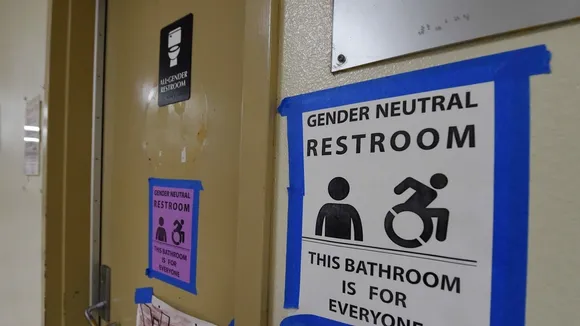
Amid growing concerns over the safety and equity of public restrooms for transgender and nonbinary individuals, allies play a crucial role in creating inclusive environments. Despite progressive policies in some states, many trans people still face harassment, underscoring the need for widespread societal support and awareness. This article delves into the challenges and offers actionable advice for those looking to make a difference.
Understanding the Challenges
For many in the transgender and nonbinary community, finding a safe restroom is a daunting task fraught with anxiety and fear of harassment. Studies, such as the 2015 U.S. Transgender Survey, reveal that a significant percentage of trans individuals avoid public restrooms altogether to dodge potential confrontations. This reality is not confined to states with restrictive bathroom policies, as even in more accepting regions, the threat of discrimination looms large. The recent federal investigation into the Owasso, Okla. district, following the tragic death of a nonbinary student, highlights the real dangers faced by transgender students in educational settings and raises questions about the adequacy of protective measures.
How Allies Can Help
Allyship can manifest in various meaningful ways, from locating and sharing information about gender-neutral bathrooms to offering support and companionship. Simple gestures, such as a smile or a nod, can significantly impact a transgender or nonbinary person’s experience in a gendered space. Advocates stress the importance of proactive support, urging allies to speak up against harassment and to advocate for the implementation of more inclusive policies and facilities. By fostering a culture of respect and understanding, allies can contribute to a safer, more welcoming environment for all.
Advocating for Change
While individual actions are important, systemic change is crucial to ensuring long-term safety and equity. This includes not only the adoption of more gender-neutral restrooms in public spaces but also a broader societal shift towards recognizing and respecting gender diversity. Engaging in dialogues, supporting trans-led initiatives, and challenging discriminatory policies are all steps towards building a more inclusive society. The movement for safer restrooms is not just about facilities but about affirming the dignity and rights of transgender and nonbinary individuals.
The journey towards inclusive restrooms is emblematic of the broader struggle for transgender rights and acceptance. By understanding the challenges, offering support, and advocating for systemic change, allies can play a vital role in ensuring that everyone, regardless of gender identity, can navigate public spaces with dignity and safety. As this issue continues to evolve, it serves as a reminder of the ongoing work required to build a truly inclusive society.



